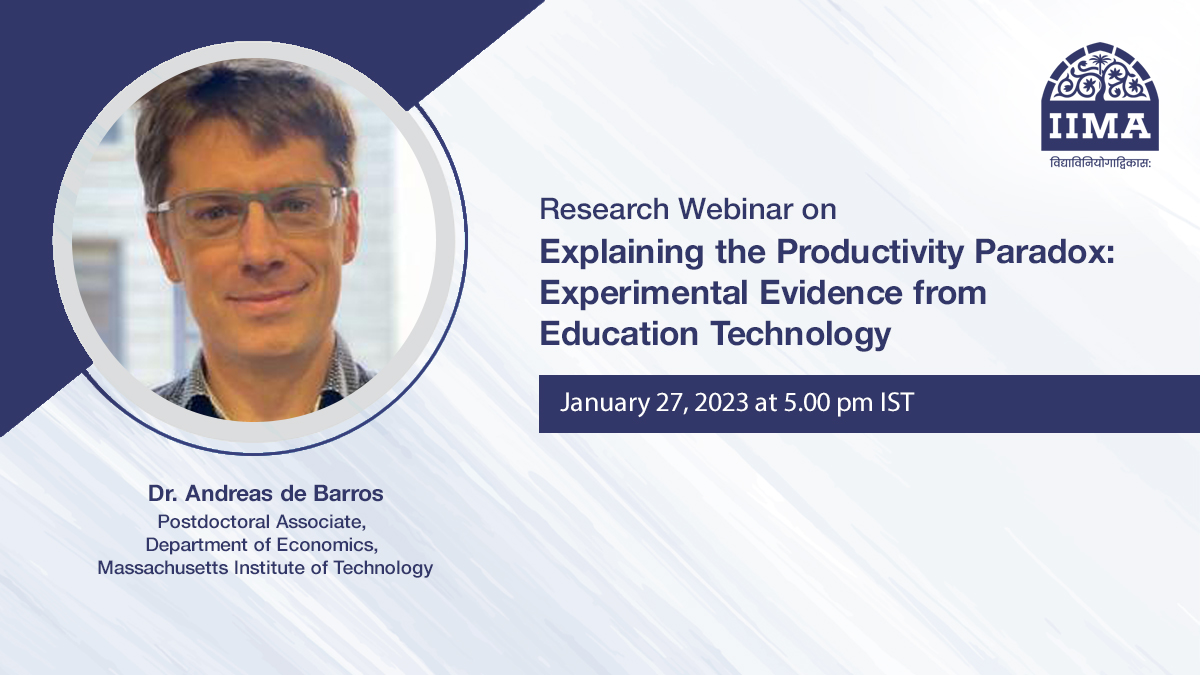
27/01/2023

Abstract:
Explaining the productivity paradox—the phenomenon where an introduction of information and communication technology (ICT) does not lead to improvements in labor productivity—is difficult, as changes in technology often coincide with adjustments to working hours and substitution of labor. I conduct a cluster-randomized trial in India to investigate the effects of a program that provides teachers with continuous training and materials, encouraging them to blend their instruction with high-quality videos. Teaching hours, teacher-to-student assignments, and the curriculum are held constant. Eleven months after its launch, I document negative effects on student learning in grades 9 and 10 in mathematics, and no effects in science. I also find detrimental effects on instructional quality, instructional practices, and student perceptions and attitudes towards mathematics and science. These findings suggest adjustment costs can serve as one explanation for the paradox.
Bio:
Andreas de Barros is a Postdoctoral Associate at MIT’s Department of Economics, where he works with Teaching at the Right Level (TaRL) Africa and J-PAL South Asia. Andy's research specializes in program evaluation and evidence-based education policy in less-developed countries. His current projects focus on teaching quality as a key determinant of student learning and on the potential of educational technology to improve instruction. He holds a Ph.D. in Education, with a concentration in Education Policy and Program Evaluation, from Harvard University.
